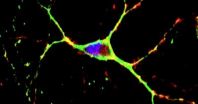(Press-News.org) CHAMPAIGN, lll. — Partisans beware! Some of your most cherished political attitudes may be malleable! Researchers report that simply answering three "why" questions on an innocuous topic leads people to be more moderate in their views on an otherwise polarizing political issue.
The research, described in the journal Social Psychological and Personality Science, explored attitudes toward what some people refer to as the ground zero mosque, an Islamic community center and mosque built two blocks from the site of the former World Trade Center in New York City. When the Islamic center first was proposed it sparked a heated debate pitting proponents of religious freedom against those who felt the center should be moved away from the site of the 9/11 attacks out of reverence for those killed by Muslim extremists.
"We used the ground zero mosque as a particularly polarizing issue," said University of Illinois psychology professor Jesse Preston, who supervised the research with graduate students Daniel Yang and Ivan Hernandez. "People feel strongly about it generally one way or the other." Yang, now a postdoctoral researcher at Yale, designed the study with Preston and led the experiments.
The researchers used techniques known to induce an abstract mindset in people, Preston said.
Previous studies had shown that asking people to think broadly about a subject (with "why" rather than "how" questions, for example) makes it easier for them to look at an issue from different perspectives.
" 'Why' questions make people think more in terms of the big picture, more in terms of intentions and goals, whereas more concrete 'how' questions are focused on something very specific, something right in front of you, basically," Preston said.
Previous research showed that abstract thinking enhances creativity and open-mindedness, but this is the first study to test its power to moderate political beliefs, Preston said.
The interventions were simple. In the first experiment the researchers established that, after viewing an image of an airplane flying into one of the World Trade Center towers, liberals and conservatives held opposing attitudes toward the ground zero mosque and community center.
A second study repeated the first with new participants and included one minor – but significant – change. Before they gave their views on the mosque and community center, participants answered either three consecutive "why" questions or three consecutive "how" questions on an unrelated topic – in this case, about maintaining their health.
The "why" questions, but not the "how" questions, moved liberals and conservatives closer together on the issue of the Islamic center, Preston said.
"We observed that liberals and conservatives became more moderate in their attitudes," she said. "After this very brief task that just put them in this abstract mindset, they were more willing to consider the point of view of the opposition."
The researchers conducted a third experiment online to test the effects in a more diverse population. In this round, they asked participants to read an ambiguous "faux Yahoo! News" article that included multiple arguments for and against the Islamic center.
Those who viewed the article in an easy-to-read format remained polarized in their views, the researchers found. But those who read the same article after it had been photocopied and made harder to read were more moderate in their responses.
Making the information harder to read induced abstract thinking, Preston said.
"It's a surprisingly powerful manipulation because people are thinking in a different way and putting in more mental effort while reading," she said.
"We tend to think that liberals and conservatives are on opposite sides of the spectrum from each other and there's no way we can get them to compromise, but this suggests that we can find ways of compromising," Preston said. "It doesn't mean people are going to completely change their attitudes, because these are based on pervasive beliefs and world views. But it does mean that you can get people to come together on issues where it's really important or perhaps where compromise is necessary."
INFORMATION:
This is one of two new studies from Preston's lab to explore interventions that moderate political bias. The other study, reported in the Journal of Experimental Social Psychology, tackles attitudes toward capital punishment and verdicts in a mock criminal trial.
Editor's note: To contact Jesse Preston, email jlp@uillinois.edu.
The paper, "Polarized Attitudes Toward the Ground Zero Mosque Are Reduced by High-Level Construal," is available online and from the U. of I. News Bureau.
Psychology department: http://www.psychology.illinois.edu/
Jesse Preston's lab page: http://uofisocialcognitionlab.x10.mx/Index.html
Abstract thinking can make you more politically moderate
2012-11-02
ELSE PRESS RELEASES FROM THIS DATE:
Researchers 'watch' antibiotics attack tuberculosis bacteria inside cells
2012-11-02
NEW YORK (Nov. 1, 2012) -- Weill Cornell Medical College researchers report that mass spectrometry, a tool currently used to detect and measure proteins and lipids, can also now allow biologists to "see" for the first time exactly how drugs work inside living cells to kill infectious microbes. As a result, scientists may be able to improve existing antibiotics and design new, smarter ones to fight deadly infections, such as tuberculosis. The new study was published in today's early online edition of Science.
"The development of antibiotics has been stalled for several ...
Why seas are rising ahead of predictions
2012-11-02
Boulder, CO, USA – Sea levels are rising faster than expected from global warming, and University of Colorado geologist Bill Hay has a good idea why. The last official IPCC report in 2007 projected a global sea level rise between 0.2 and 0.5 meters by the year 2100. But current sea-level rise measurements meet or exceed the high end of that range and suggest a rise of one meter or more by the end of the century.
"What's missing from the models used to forecast sea-level rise are critical feedbacks that speed everything up," says Hay. He will be presenting some of these ...
Bird tree tells new tale of evolution
2012-11-02
Contact:
Arne Mooers, 778.782.3979, amooers@sfu.ca
Carol Thorbes, PAMR, 778.782.3035, cthorbes@sfu.ca END ...
Berkeley Lab scientists help develop promising therapy for Huntington's disease
2012-11-02
There's new hope in the fight against Huntington's disease. A group of researchers that includes scientists from the U.S. Department of Energy's Lawrence Berkeley National Laboratory (Berkeley Lab) have designed a compound that suppresses symptoms of the devastating disease in mice.
The compound is a synthetic antioxidant that targets mitochondria, an organelle within cells that serves as a cell's power plant. Oxidative damage to mitochondria is implicated in many neurodegenerative diseases including Alzheimer's, Parkinson's, and Huntington's.
The scientists administered ...
The ins and outs of in-groups and out-groups
2012-11-02
We humans organize ourselves in myriad kinds of social groups, from scout troops and sports teams to networks of friends, colleagues, or classmates. But how do these social groups work? How do we decide whom to trust and whom to follow? And how do we deal with people that don't seem to fit the norms of our social groups?
New research published in Psychological Science, a journal of the Association for Psychological Science, explores these issues by examining various facets of social perception and behavior.
The Herding Hormone: Oxytocin Stimulates In-Group Conformity
Mirre ...
Bigger human genome pool uncovers rarer variants
2012-11-02
Contact:
Iman Hajirasouliha, 778.782.7040, 604.418.4834 (cell), imanh@sfu.ca
Carol Thorbes, PAMR, 778.782.3035, cthorbes@sfu.ca
Flickr: http://at.sfu.ca/skirFz END ...
UC Davis scientists identify new target for lung cancer treatment
2012-11-02
(SACRAMENTO, Calif.) — A team of UC Davis investigators has discovered a protein on the surface of lung cancer cells that could prove to be an important new target for anti-cancer therapy. A series of experiments in mice with lung cancer showed that specific targeting of the protein with monoclonal antibodies reduced the size of tumors, lowered the occurrence of metastases and substantially lengthened survival time. The findings will be published in the November issue of Cancer Research.
"Lung cancer continues to be one of the biggest killers in the United States, and ...
How the negative trumps the positive in politics
2012-11-02
Negatively framed political attitudes ("I don't like Obama") are stronger than positively framed attitudes ("I like Romney"), and this effect is strengthened when people think more deeply about the issues involved.
That is the finding of a paper published in the latest issue of the British Journal of Social Psychology by George Bizer, a psychology professor at Union College in Schenectady, N.Y.
Bizer and his co-authors Iris Žeželj (University of Belgrade) and Jamie Luguri (Yale University) presented participants with information about two fictional (though ostensibly ...
New light on the genetic basis of inflammatory diseases
2012-11-02
In one of the largest studies of its kind ever conducted, an international team of scientists has thrown new light on the genetic basis of the inflammatory bowel diseases (IBD). Crohn's disease and ulcerative colitis, the two most common forms of IBD, are chronic inflammatory digestive disorders affecting 230,000 Canadians. Dr. John Rioux, researcher at the Montreal Heart Institute and Associate Professor of Medicine at the Université de Montréal, is one of the researchers who have identified 71 genetic regions newly associated with inflammatory bowel disease (IBD), increasing ...
Combination treatment may improve survival of breast cancer patients with brain metastases
2012-11-02
Adding an angiogenesis inhibitor to treatment with a HER2-inhibiting drug could improve outcomes for patients with HER2-positive breast cancer who develop brain metastases. In their report published online in PNAS Plus, Massachusetts General Hospital (MGH) investigators report the first preclinical study combining antiangiogenic and anti-HER2 drugs in an animal model of brain metastatic breast cancer.
"We have shown dramatic improvement in survival by slowing the growth of brain metastatic, HER2-amplified breast cancer," says Rakesh Jain, PhD, director of the Steele ...


